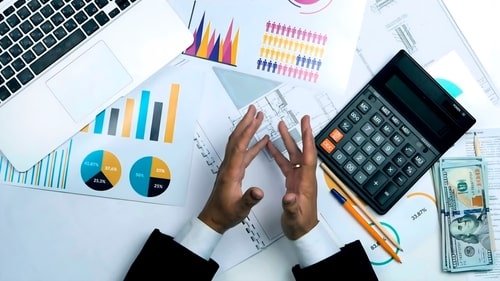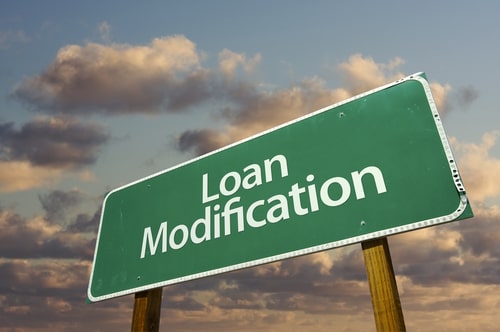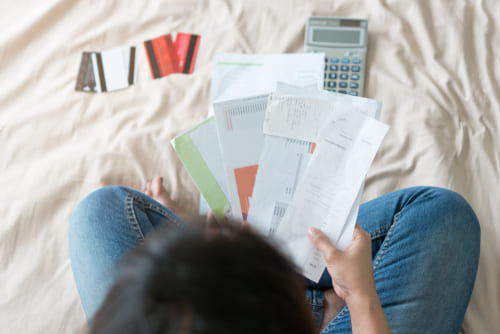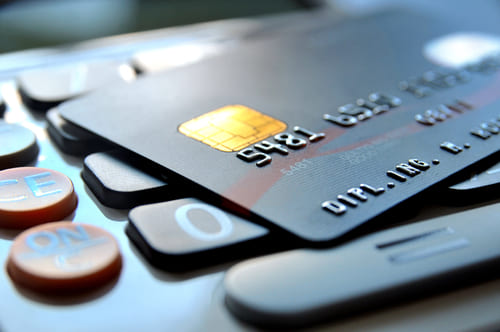 312-704-0771
312-704-0771
Recent Blog Posts
An Overview of Legal Remedies Available for Unpaid Debts
 As a creditor in Illinois, you have various legal options to recover money owed when a debtor fails to pay. Understanding your rights and the proper legal procedures can help you collect what you are owed more effectively. An Illinois lawyer can help you with the legalities available under the law to collect on delinquent accounts and unpaid debts.
As a creditor in Illinois, you have various legal options to recover money owed when a debtor fails to pay. Understanding your rights and the proper legal procedures can help you collect what you are owed more effectively. An Illinois lawyer can help you with the legalities available under the law to collect on delinquent accounts and unpaid debts.
Demand Letter
The first step in addressing an unpaid debt should be to send the debtor a formal demand letter. A strongly worded letter outlining the debt owed, including the principal, interest, and any penalties, may be enough to prompt payment. The letter should specify a deadline for paying the debt, after which you will pursue legal action. Sending a demand letter establishes that you have made a good-faith attempt to collect the debt before escalating to a lawsuit.
Filing a Lawsuit
If a demand letter does not result in payment, the next step is usually to file a lawsuit against the debtor in civil court. In Illinois, for debts under $10,000, you would file the case in small claims court. For larger debts, you would file in the appropriate district court in the county where the debtor resides or where the agreement giving rise to the debt was signed.
Negotiating Payment Plans: A Win-Win Solution for Creditors and Borrowers
 Both creditors and borrowers face many challenges when it comes to managing outstanding debts. While creditors aim to recover the money owed to them, borrowers often find themselves in difficult financial situations that make repayment challenging. In such scenarios, negotiating a payment plan can be a win-win solution that benefits both parties. An Illinois lawyer can help you figure out how this option is ideal for each side.
Both creditors and borrowers face many challenges when it comes to managing outstanding debts. While creditors aim to recover the money owed to them, borrowers often find themselves in difficult financial situations that make repayment challenging. In such scenarios, negotiating a payment plan can be a win-win solution that benefits both parties. An Illinois lawyer can help you figure out how this option is ideal for each side.
The Benefits of Payment Plans
Payment plans offer flexibility and can be tailored to the specific circumstances of both the creditor and the borrower. Considering factors such as the borrower’s income, expenses, and overall financial situation, a payment plan can be structured to provide manageable installments that the borrower can meet. For creditors, implementing payment plans can lead to a more consistent and predictable cash flow. Instead of waiting indefinitely for a lump sum payment, creditors can receive smaller but regular payments over an agreed-upon period. This steady stream of income can help creditors better manage their financial obligations.
Lenders Using Loan Modifications to Avoid Foreclosure
 Going through the challenges of foreclosure can be a daunting task for lenders. However, loan modifications present an effective solution that can benefit both lenders and borrowers alike. By proactively offering loan modifications, lenders can help struggling homeowners stay in their homes while minimizing financial losses and demonstrating a commitment to customer service. An Illinois lawyer can help make sure you go through this process properly.
Going through the challenges of foreclosure can be a daunting task for lenders. However, loan modifications present an effective solution that can benefit both lenders and borrowers alike. By proactively offering loan modifications, lenders can help struggling homeowners stay in their homes while minimizing financial losses and demonstrating a commitment to customer service. An Illinois lawyer can help make sure you go through this process properly.
Benefits of Loan Modifications for Lenders
Offering loan modifications can be advantageous for lenders in several ways. First, foreclosures can be expensive, time-consuming, and may result in significant losses for lenders. Lenders can avoid these costs by modifying loans and potentially recovering more of the outstanding debt.
Working with borrowers to find a solution demonstrates a commitment to customer service and can lead to increased loyalty and positive word-of-mouth referrals. The Illinois Mortgage Foreclosure Law (IMFL) requires lenders to consider loan modifications in certain situations, such as when a borrower requests a modification or when the property is owner-occupied. By proactively offering modifications, lenders can ensure compliance with state laws.
The Foreclosure Process for Mortgage Lenders
 As a mortgage lender in Illinois, it is essential to understand the foreclosure process when a borrower defaults on their loan. While you may know all about foreclosure as a lender, it is vital that you know the proper way to go about the steps. If you find yourself in this situation, an Illinois lawyer can help you with the foreclosure process so you understand the proper legal way to proceed.
As a mortgage lender in Illinois, it is essential to understand the foreclosure process when a borrower defaults on their loan. While you may know all about foreclosure as a lender, it is vital that you know the proper way to go about the steps. If you find yourself in this situation, an Illinois lawyer can help you with the foreclosure process so you understand the proper legal way to proceed.
Types of Foreclosure in Illinois
In Illinois, mortgage lenders have two primary foreclosure options at their disposal: judicial foreclosure and power of sale foreclosure. Judicial foreclosure, the most prevalent type in the state, involves the lender filing a lawsuit against the defaulting borrower in court to secure a judgment of foreclosure. This process can be lengthy and complex, requiring adherence to strict legal procedures and deadlines. The court plays a central role in overseeing the case, ensuring that the rights of both the lender and borrower are protected throughout the proceedings.
Negotiation Strategies Attorneys Can Use When Handling Credit Card Debtors in Illinois
 Navigating credit card debt can be a challenging and stressful experience for both debtors and creditors. In these situations, debtors are individuals or institutions that owe money. Meanwhile, creditors are individuals or businesses to whom money is owed. In Illinois, attorneys play a crucial role in negotiating payment plans with credit card debtors while protecting the rights of the credit card company and ensuring the rights of the debtor are not violated.
Navigating credit card debt can be a challenging and stressful experience for both debtors and creditors. In these situations, debtors are individuals or institutions that owe money. Meanwhile, creditors are individuals or businesses to whom money is owed. In Illinois, attorneys play a crucial role in negotiating payment plans with credit card debtors while protecting the rights of the credit card company and ensuring the rights of the debtor are not violated.
If you are a creditor seeking assistance in collecting credit card debt from a debtor, skilled lawyers are ready to help you achieve your legal goals.
Since 1983, Dimand Walinski Law Offices, P.C. has assisted clients in debt collection matters in Illinois. No matter how complicated the situation, businesses and institutions looking to pursue credit card debt from a debtor can trust that experienced lawyers can handle the situation professionally, using skilled negotiation tactics to seek a positive outcome for the creditor.
Understanding Credit Union Debt Collection in Illinois
 Debt collection is a critical aspect of Illinois credit union operations as these companies work to recover unpaid debts from borrowers who have defaulted on their loans. Understanding the legal framework surrounding debt collection and following the law carefully when making recovery efforts are important to avoid expensive penalties and legal sanctions.
Debt collection is a critical aspect of Illinois credit union operations as these companies work to recover unpaid debts from borrowers who have defaulted on their loans. Understanding the legal framework surrounding debt collection and following the law carefully when making recovery efforts are important to avoid expensive penalties and legal sanctions.
If you represent a credit union and need legal assistance in a debt collection matter, contact a lawyer to ensure you can navigate the process effectively from the very beginning. Here are some key points to know about debt collection practices for credit unions in Illinois.
Credit Unions Are Bound By Guidelines When Dealing with Borrowers
Illinois credit unions are subject to federal and state laws governing debt collection practices. The Fair Debt Collection Practices Act (FDCPA) is a federal law that discusses specific rules and regulations that debt collectors, including credit unions, must follow when attempting to collect debts from borrowers. In addition to the FDCPA, Illinois has laws regulating debt collection practices, such as the Illinois Collection Agency Act.
What is a Detinue Recovery Action in Illinois?
 Detinue is a legal action that allows a person to recover personal property that another party wrongfully withholds. In Illinois, a detinue recovery action can be pursued when someone is in possession of another person’s property and refuses to return it. This legal remedy is available to people who have a rightful claim to the property but have been denied access to it. If you need legal assistance in such matters, contact a skilled attorney to ensure the recovery action you pursue is as aggressive as possible
Detinue is a legal action that allows a person to recover personal property that another party wrongfully withholds. In Illinois, a detinue recovery action can be pursued when someone is in possession of another person’s property and refuses to return it. This legal remedy is available to people who have a rightful claim to the property but have been denied access to it. If you need legal assistance in such matters, contact a skilled attorney to ensure the recovery action you pursue is as aggressive as possible
Initiating a Detinue Recovery Action
In Illinois, to initiate a detinue recovery action in Illinois, the plaintiff must demonstrate three key elements: ownership of the property, wrongful detention by the defendant, and a demand for the return of the property. The plaintiff must prove that they have a valid legal right to the property and that the defendant is unlawfully withholding it from them. This can be established through documentation such as receipts, contracts, or other evidence of ownership
What to Know About Truck Lenders in Debt Collection Actions
 If you are a truck lender seeking assistance in debt collection actions, it is crucial to have a comprehensive understanding of the process and the legal aspects involved. Debt collection can be a complex and challenging task, but with the proper knowledge and guidance, you can navigate this process effectively. If you are a truck lender seeking assistance, do not hesitate to contact an experienced debt collection attorney in Illinois. They will know how to best help with your legal situation.
If you are a truck lender seeking assistance in debt collection actions, it is crucial to have a comprehensive understanding of the process and the legal aspects involved. Debt collection can be a complex and challenging task, but with the proper knowledge and guidance, you can navigate this process effectively. If you are a truck lender seeking assistance, do not hesitate to contact an experienced debt collection attorney in Illinois. They will know how to best help with your legal situation.
Review the Loan Agreement
The first step in dealing with debt collection actions is carefully reviewing the loan agreement. Understanding the terms and conditions outlined in the agreement is crucial, as it will dictate the rights and obligations of both parties in the event of a default. Pay close attention to default, repossession, and debt collection provisions, as they will guide your actions moving forward.
What is a Lift Stay Motion in Bankruptcy Law?
 In the complex and ever-changing world of bankruptcy law, a lift stay motion is a legal mechanism used by creditors to request the court’s permission to continue or initiate collection actions against an Illinois debtor despite the automatic stay typically imposed for filing for bankruptcy. If you are approaching the daunting task of going through bankruptcy and wish to legally safeguard yourself in every way possible, hire a lawyer as your first step toward successfully navigating the process.
In the complex and ever-changing world of bankruptcy law, a lift stay motion is a legal mechanism used by creditors to request the court’s permission to continue or initiate collection actions against an Illinois debtor despite the automatic stay typically imposed for filing for bankruptcy. If you are approaching the daunting task of going through bankruptcy and wish to legally safeguard yourself in every way possible, hire a lawyer as your first step toward successfully navigating the process.
Taking a Deeper Dive into Lift Stay Motions
When a debtor files for bankruptcy, an automatic stay is immediately imposed, halting most collection actions against the debtor. However, creditors may file a lift stay motion to request the court’s permission to proceed with collection efforts. A lift stay motion is typically filed when the creditor believes the debtor’s bankruptcy filing is an abuse of the bankruptcy system or that the automatic stay unfairly prejudices the creditor’s interests. The motion must demonstrate “cause” to convince the court that lifting the stay is justified
What to Know About Auto Lender Debt Collection in Illinois
 Auto lender debt collection is a complex process governed by specific laws and regulations in each state. In Illinois, understanding the legal framework is crucial for lenders and borrowers. If you work for a car dealership and need help handling an auto loan that has gone delinquent, legal professionals are ready to assist you in the repossession process and beyond. Contact a lawyer today to get the professional legal assistance you need.
Auto lender debt collection is a complex process governed by specific laws and regulations in each state. In Illinois, understanding the legal framework is crucial for lenders and borrowers. If you work for a car dealership and need help handling an auto loan that has gone delinquent, legal professionals are ready to assist you in the repossession process and beyond. Contact a lawyer today to get the professional legal assistance you need.
Collection Agency Act
In Illinois, the Collection Agency Act regulates debt collection practices in the state. Auto lenders must comply with this act when attempting to collect debts from borrowers. Under the ICAA, lenders must be licensed and bonded and follow specific guidelines regarding communication, disclosure, and harassment. Lenders need to familiarize themselves with the act’s provisions to ensure compliance and avoid legal repercussions.






